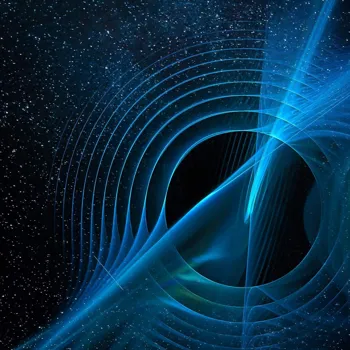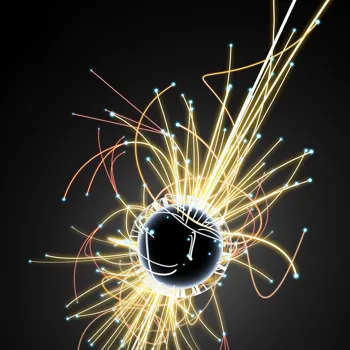Unveiling the Mysteries of Quantum Mechanics: Dive into the Cosmos' Secrets. Read more to unravel the enigmatic quantum world
From the smallest atom to the vast expanse of space, quantum mechanics plays
a crucial role in how we understand the universe around us. This field, though often seeming abstract, is the bedrock of much of modern physics and technology.

It governs the behavior of matter at the atomic and subatomic levels, providing insights into phenomena that classical physics simply cannot explain. Understanding its principles is key to unlocking many mysteries of the cosmos and developing new technologies.
Quantum mechanics explores probability in a world of uncertainty
Quantum mechanics, at its heart, deals with probability. Unlike classical physics, which paints a deterministic picture of the universe, quantum mechanics tells us that we can only predict the likelihood of certain outcomes.

This is due to the wave-particle duality of matter - particles like electrons can behave as both particles and waves. We can't know both their position and momentum with perfect accuracy simultaneously. This uncertainty gives rise to a probabilistic view of the universe.
Experiments like the double-slit experiment elegantly demonstrate this wave-particle nature, baffling scientists for years and highlighting the strangeness and beauty of the quantum world.
Quantum mechanics shapes cosmological theories
The implications of quantum mechanics extend far beyond the laboratory. Cosmology, the study of the origin and evolution of the universe, relies heavily on quantum principles.

The Big Bang theory, the prevailing cosmological model for the universe, necessitates a quantum understanding of the universe's earliest moments. In that extreme environment, classical physics breaks down.
Quantum mechanics also is important in understanding processes that occurred in the early phases of the universe's growth and development. The behavior of particles and quantum fluctuations in the early cosmos influenced the structure of the galaxy and the formation of stars.
quantum entanglement links particles' fates, key to advanced tech
Quantum entanglement, one of the most intriguing aspects of quantum mechanics, also holds immense promise. It says that two particles can be linked in such a way that their fates are intertwined, regardless of the distance between them.
This means that if you measure a property of one particle, you instantly know the corresponding property of the other. This phenomenon has implications for quantum computing and quantum communication, potentially leading to incredibly powerful computers and secure communication networks.
Quantum entanglement seems to defy classical intuition, but it's been experimentally verified again and again making it a crucial part of quantum mechanism.
Quantum mechanics impacts technology in daily life
Quantum mechanics shapes our daily lives in many ways, even if we don't realise it. Lasers, used in everything from barcode scanners to medical equipment, operate based on quantum principles.
Transistors, the building blocks of computers and smartphones, rely on the quantum behavior of electrons in semiconductors. Magnetic Resonance Imaging (MRI), a vital tool in medical diagnostics, exploits the quantum properties of atomic nuclei.
These technologies all have become integral parts of modern life thanks to our understanding of quantum mechanics. Further advancement is also on the horizon that promises even greater utility.
Quantum field theory explains fundamental forces and particles. Standard Model details forces and particles, tested and verified
Quantum field theory, a marriage of quantum mechanics and special relativity, gives a framework for understanding fundamental forces and particles.

The Standard Model of particle physics, which comes from quantum field theory, describes all the known fundamental forces (except gravity) and the elementary particles that make up matter. It explains things like the electromagnetic force, the weak nuclear force and the strong nuclear force.
The model has been tested extensively and it has been shown to match experimental findings. Scientists continue to push the boundaries of our understanding of the universe to uncover the nature of dark matter and dark energy. These fields offer avenues for deeper understanding.
AI Generated Content. Glance/InMobi shall have no liability for the content
















